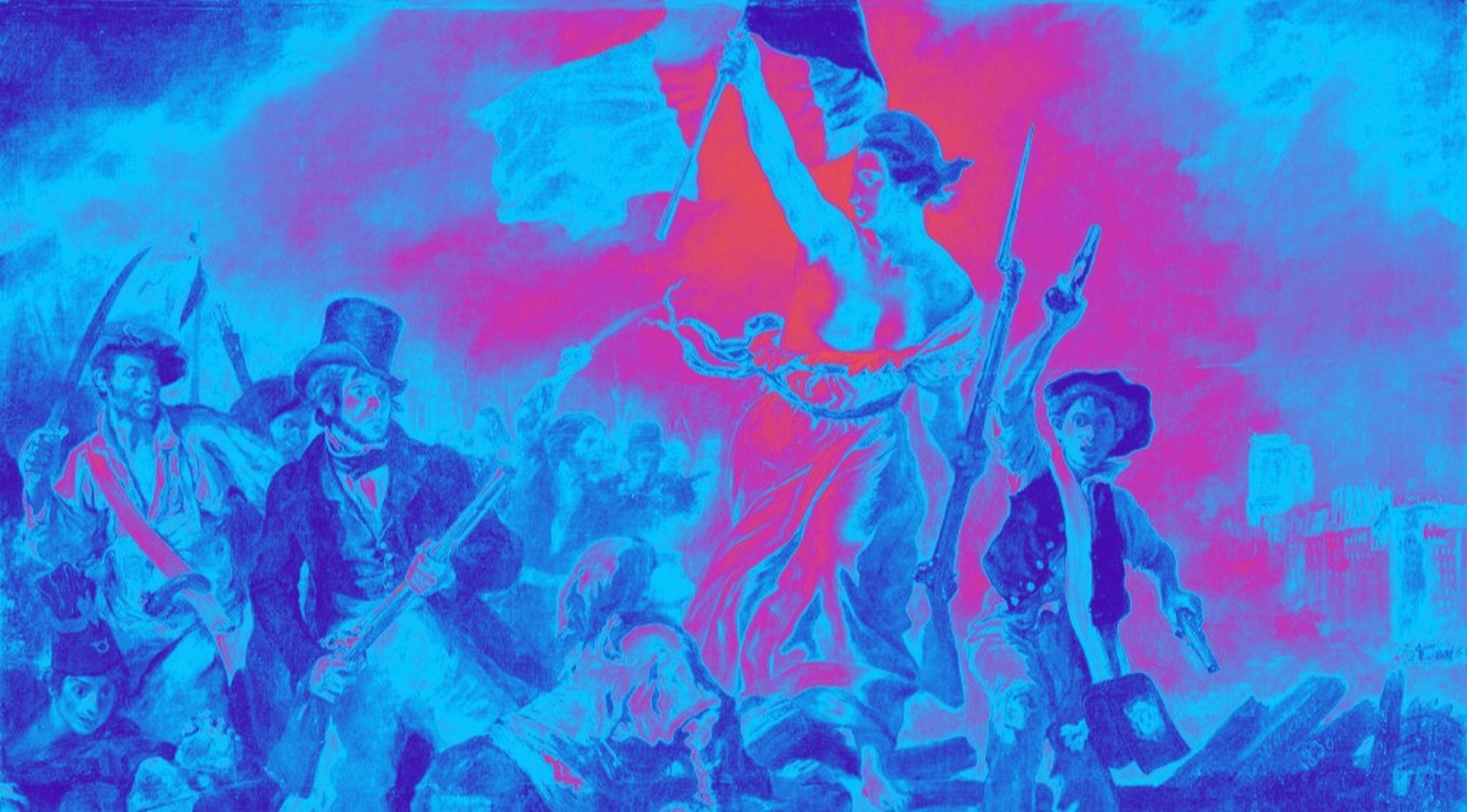
CALL: Rebuilding love
The Catalan artist Adala (how to define him? In his Spotify bio, he writes that his music is “an imaginary conversation between the words of Eduardo Galeano, his grandmother’s recipes, the Solar Punk ideas of tireless youth, and the zest for life of unconscious childhood”) writes in a piece titled Nomada:
Dius que m'estimes a mi/i que estimes moltes altres/t'entenc i em fa feliç/que desitgis més persones./Mil maneres d'estimar/totes seran sempre bones/quan l'amor no està engabiat/quan no ets pres ni l'empresones./Jo vull estar el teu costat/descobrir noves muntanyes/més enllà del nostre prat/i construir molts més refugis.
Translated into English, it would be:
You say that you love me/and that you love many others/I understand you and this makes me happy/that you desire more people./A thousand ways of loving/they will always be good/when love is not caged/when you are not imprisoned nor imprison./I want to be by your side/discover new mountains/beyond our meadow/and build many more shelters.
Adala (Guillem Simó) was born in Torre Baró, a neighborhood in the northern outskirts of Barcelona, self-built in the 1950s by emigrants from Andalusia and Extremadura. His reggae is libertarian and revolutionary, and during an acoustic concert at the self-managed space Can Batlló in Barcelona - which I attended about two years ago (November 2022, en), not even knowing who he was - he paraphrased his own lyrics, between one song and another, showing himself to be a contemporary political philosopher, in addition to being a great musician.
Words like those in the verses above surprisingly describe the privileged way in which many people seem to understand love here in Barcelona: spontaneous, free, without even the need to find the most progressive label to circumscribe it.
Fortunately, now there are many names to define types of relationships that, indeed, have always existed in human history, but without being named; the fact that they are given a name makes them visible, and making them visible means normalizing them. Normalizing them also means legitimizing them, and I could continue with further syllogisms, but the point is not this. What I want to say is that, once the analytical process is finished and the factual knowledge put aside, once you’ve read the texts of Brigitte Vassallo and seen your first, inexperienced polyamorous relationships sink worse than the Costa Concordia in 2012, in short, once you have deconstructed everything that can be deconstructed about love, there’s only one thing left to do: rebuild. Rebuild starting from a genuine idea: that love should be free and healthy.
Fortunately (once again), we don't have to do it alone, quite the opposite: precisely because we've all acknowledged that the accounts no longer add up - in that formula of patriarchal love with which we have been indoctrinated - we take note that love is a collective matter, as well as an individual one; being collective, it is therefore political. To dissect, in both humble and majestic ways, these issues, the Vanvera Association has tackled them in the podcast Il cuore scoperto of the platform storielibere.fm, an Italian translation (not the Italian version, but the translation: a new idea in the world of digital storytelling) of the French podcast Le cœur sur la table by Victoir Tuaillon, produced by Binge Audio in 2021.
I come from a working-class family where my father has always cooked, cleaned the house, taken me everywhere, made my braids, and straightened my hair between the ages of seven and thirteen, before going to mass on Sundays (and before both he and I finally abandoned Catholic faith). He just never wanted to iron clothes. And we forgive him for that. While my mother exhausted herself for twelve hours a day in a supermarket, my father always took on the caregiving work that usually weighs on the shoulders of women; he didn't do it to defy the normativity nor to break gender stereotypes, he didn't act with the awareness of someone who knows the mechanisms of patriarchy, so he didn't do it because he's a feminist (only recently has he come to know this word): he did it because he is a good, intelligent, sensitive man, in love with his wife and children. But also a practical man: if lunch needs to be prepared and the floor swept, someone has to do it, without questioning whether it’s a “female” or “male” thing. End of story. My father is sixty-one years old, has just completed lower secondary school, and is the tenth child of illiterate farmer grandparents.
Naturally, I was not entirely exempt from binaryist precepts, moreover seasoned with a healthy dose of southern conservatism, but I consider myself very lucky to have had the parents I did, in the context I grew up in.
Rebuilding love doesn’t necessarily mean inventing something that doesn’t yet exist, nor theorizing the perfect formula that can replace that of cis-heterosexual monogamy; it means knowing how to draw from something that already existed, from positive examples that are usually sidelined, because cultural hegemony is another big problem. Studying the Greeks and Latins, but also learning from our most recent peasant history, modernizing it. Learning from poverty, redeeming it. Telling different stories, dignifying them. Only by doing this can we write a future that will be feminist, or it won’t be.